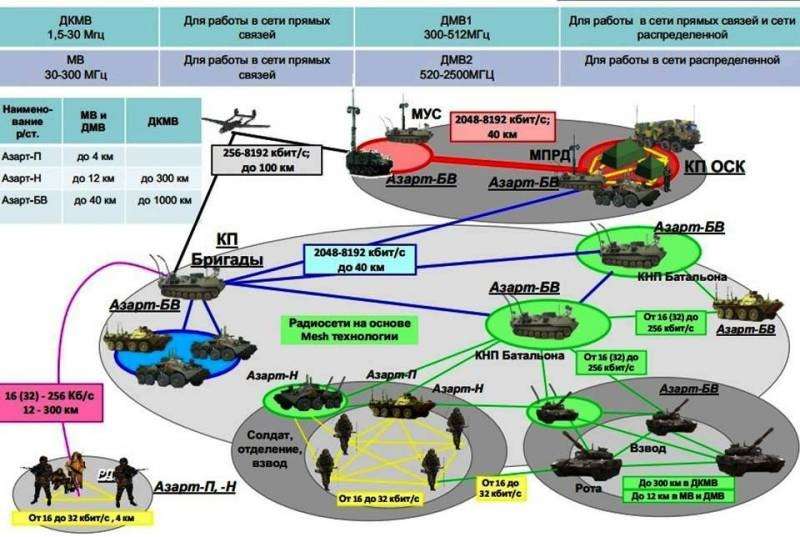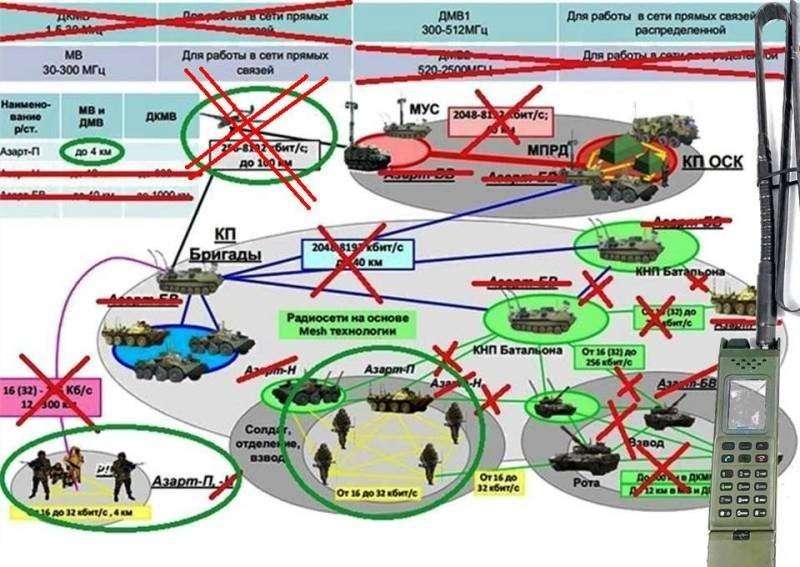
Patricia Marins
Despite being engaged in warfare for 17 months, the Russian Army still struggles with its communication infrastructure. The Azart system, designed to provide secure tactical-level communications even in the presence of electronic countermeasures, has faced significant hurdles in its implementation.
As of July, the Azart system’s range is limited to only 4 km without the use of repeaters—a cumbersome and impractical solution. Armored vehicles and command staff vehicles lack PRFC radio stations, and the HF segment is non-functional.
Presently, the Russian Army employs three generations of radio systems: the Soviet R-123 and R-173, the R-168 Aqueduct, and the R-187 Azart (though the latter is utilized by only a few). There are also reports of a fourth system, the Andromeda-D, used by airborne forces.

The situation becomes challenging when portable radio stations are deployed as fixed relays between headquarters and troop locations, where distances exceed the 4 km range.
To address the issue temporarily, the Russian Army has resorted to using Chinese “recreational” radio Baofenge. Moreover, at a higher level, they have sought solutions from China, as evident in the purchase of 6 Chinese Kirisun portable digital radios by the Ministry of Defense of the Russian Federation. This reveals a surprising level of reliance on foreign technology.
Adding to the lack of coordination and compatibility, the Wagner Group, a private military company associated with Russia, uses Motorola commercial radios with AES encryption.

The corruption scandal involving General-Colonel Khalil Arslanov, the former Deputy Chief of the General Staff and Chief of Communication Troops, during the procurement of the Azart system in 2019 further exacerbated the situation.
However, despite these challenges and historical issues, there have been recent efforts to adapt and address the communication problems. Azart, the manufacturer of military radios, came under state control on May 14, 2023, and is now working to resolve the issues.
It is important to note that while corruption played a part in the Azart system’s implementation problems, poor planning also contributed to the situation.
Nevertheless, amidst these challenges, the Russian Army has shown remarkable resilience and has been rapidly improving in various aspects, despite the primitiveness of some communication elements.



Be the first to comment